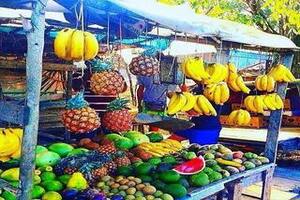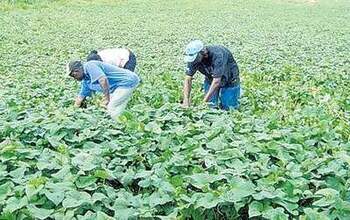FOOD SECURITY & AGRICULTURE
Food Security is defined as “a situation that exists when all people, at all times, have physical, social and economic access to sufficient, safe and nutritious food that meets their dietary needs and food preferences for an active and healthy life.” 1
Food security may be considered to have three dimensions: food availability; accessibility; and biological utilization. Food availability considers how domestic food requirements are met, whether from local production or imports. Food access relates to the ability of households and individuals to have the resources necessary to obtain food for nutritious diets, while utilization takes into account socioeconomic aspects of household food security including food preparation and conversion of food into energy.
On average, food accounts for approximately 43% of the consumption expenditure of Jamaicans, which means that food accounts for the greatest proportion of national consumption and leaves consumers vulnerable to price shocks. 2

